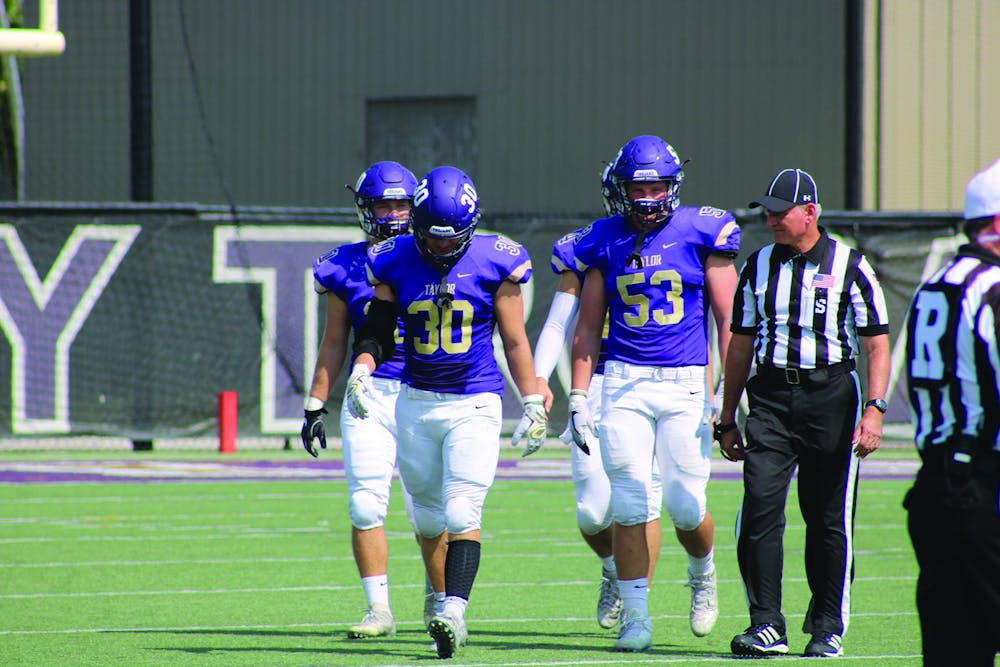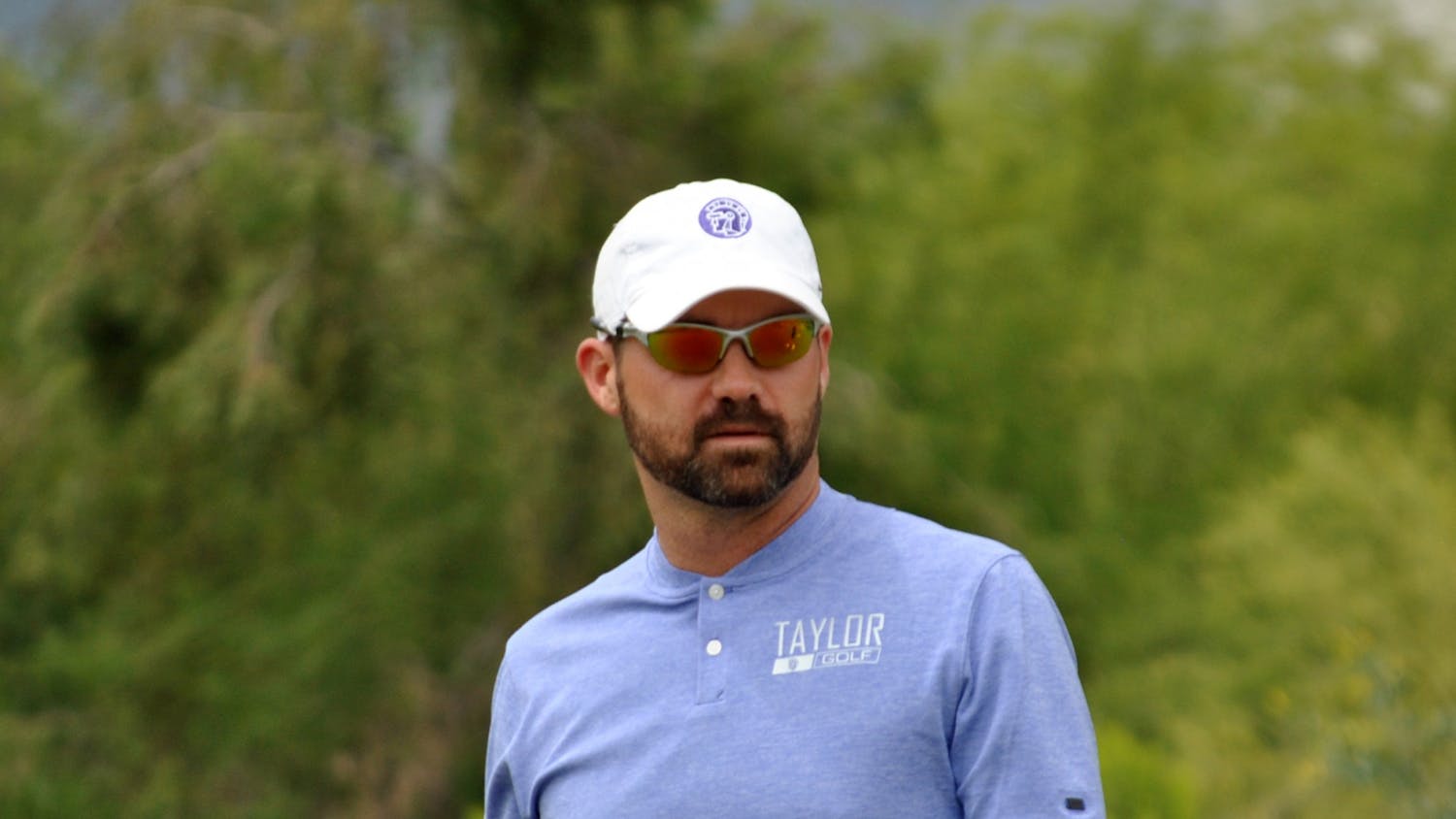Late last month, the NAIA Council of Presidents voted to move all 2020 fall championships to Spring 2021.
While the Crossroads League committed to playing its regular season out as normal, the Mid-States Football Association—Taylor’s conference for football—decided it was in their best interest to postpone the season to the Spring. Their decision follows the postponement of the national championships.
The NAIA Football National Championship was moved to May 10. According to the NAIA’s press release, the championship will be held on a Monday for the first time in its history.
To line-up with the new schedule, Taylor football is expected to kick-off in late February, with Head Coach Ron Korfmacher viewing Feb. 27 as the likely date.
Korfmacher expects a seven-game schedule lining up before the national playoffs, which begin on April 17.
Despite the Crossroads League’s decision to maintain play, the logistics for the Mid-States Football Association continuing their fall season were much cloudier.
While the Crossroads League has a small geographical range, mostly containing schools from Indiana, the Mid-States Football Association has a wide range of schools.
“The geography is really the biggest thing,” said Director of Intercollegiate Athletics Kyle Gould. “We have teams from Chicago, teams from Detroit. It covers Missouri, Iowa, Illinois, Indiana and due to that, we just didn’t think it was doable.”
Some of the schools within the conference had more tentative re-opening plans than Taylor’s and were either starting later or requiring negative tests for every student before returning, whereas Taylor only required negative tests from student-athletes before returning. Those who tested positive were told to remain home until obtaining a negative test.
Now comes the oddities of a spring football season.
Gould anticipates conflicts with other athletic events on Saturdays in the spring and the potential downsides it could have.
“Some of our facilities are located right next to each other,” Gould said. “So, you know when you’re playing a football game you really don’t have any other events going on. Now, with the proximity to baseball and track, there will be challenges.”
Despite the challenges, Gould says they are fully committed to a spring season and will use the months beforehand to make it work.
On the coaching side of things, there will be adjustments as well.
“It’s certainly been different,” Korfmacher said. “Some of (the changes) have been gradual and then sometimes you have sudden changes.”
In the past, the Trojans would be gearing up for their opening game of the season, now they’re getting ready for spring ball.
Or, maybe more appropriately, fall ball.
“We’re targeting Sept. 1 for what we call fall ball, formerly spring ball,” Korfmacher said.
While he doesn’t know what day spring practices will start, he expects early February.
Though there are some challenges to a spring football season, such as dealing with poor weather, there are also multiple positives that Korfmacher saw in the unusual circumstances.
“Our seniors will have a whole year,” Korfmacher said. “A whole year of training and preparing for the season ahead, and not only having a full year of football activities but leading them with their presence. Before, when the season ended, relationships were still there but not daily.”
Usually, seniors don’t have a full year of football in their final year with the season being in the fall. Now, they get a semester of training and a semester of playing.
Freshmen will also have the ability to ramp up physically before being faced with collegiate athletic events in their first months on campus.
“Once (the team) arrived here, the focus has been on getting better and growing as a team, and we’ll adapt to how we have to do that,” Korfmacher said.





